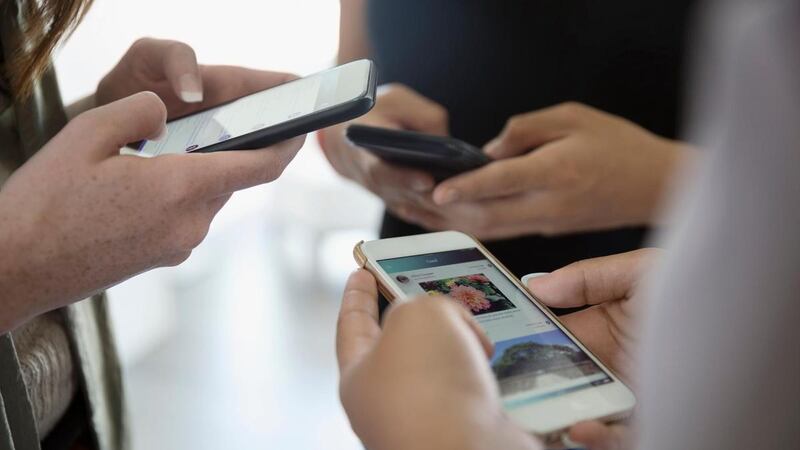Using mobile phones late at night could be hindering happiness, according to a new study that advises devices be switched off after 10pm.
Disrupting our sleep patterns and body clocks by using mobile devices late at night is a core feature of mood disorders and makes people more susceptible to depression, research published in The Lancet, Psychiatry has said.
More than 91,000 adults aged 37 to 73 took part in the study over four years, with a subset wearing an accelerometer on their wrist for seven days to gather data.
Although researchers could not say a disruption of the body’s circadian rhythm was directly causing mental problems, data from the study revealed 1 in 25 had issues related to abnormal sleeping patterns.
Those subjects were almost as active at night, as they were during daylight hours, regularly checking into social media on mobile devices, getting up to make a hot drink or watching television.
“Screen time - it’s great and it’s wonderful but, the possibilities for inflicting harm are also limitless,” said Dr Paul Lieblich Director of Schools at Clarion School Dubai.
“One of the greatest parenting struggles facing us today is screen time.”
Of those taking part in the published research, 11 per cent were more likely to have bipolar disorder and 6 per cent more likely to have depression, scoring 9 per cent lower on a happiness scale than those who had regular sleeping patterns.
Those with disrupted sleep said they were lonelier and had a lower health satisfaction.
The research model was adjusted to accommodate age, time of year, sex, ethnic origin, education, body mass index, exposure to childhood trauma and if the subject smoked or drank alcohol.
Authors of the paper said a 10pm cut-off time for using mobile devices would encourage people to wind down before going to sleep.
As well as disrupting sleep patterns, excessive screen time is also impacting on the ability of young people to learn, teachers in Dubai have said.
“We read endless articles, often on our own smartphones, about the potential dangers of screen time and the impact on our children’s development, with theories and warnings changing at a rapid pace,” said Dr Lieblich.
“This technology is disruptive in many ways and schools need to reimagine curriculum to help students navigate this virtual world so the result is more constructive than destructive in the real world.”
“Screen-time provides students with the opportunities to engage in stimulating, imaginative and illuminating information, but it is also providing opportunities for students to engage in damaging social behaviour.”
__________________
Read more:
Phone addiction: we are more connected than ever, but at what cost?
Labourers must have proper mental health provision
___________________
Experts have said signs of screen time addiction are clear and aren’t necessarily tied to how much time people spend on their smartphones, tablets, or computers.
Researchers at the University of Michigan Centre for Human Growth & Development have said how young people use mobile devices is the strongest indicator of emotional or social problems that may be connected to screen addiction.
“Typically, researchers and clinicians quantify or consider the amount of screen time as of paramount importance in determining what is normal or not normal or healthy or unhealthy,” said the lead author of similar screen time study at the university, Sarah Domoff, a clinical child psychologist.
“We’ve demonstrated that there is more to it than the number of hours.
“What matters most is whether screen use causes problems in other areas of life or has become an all-consuming activity.”
Linda Bonnar, a former teacher in Dubai who is now a life coach and has published a manual on managing mental health in young people, said many lives are significantly impacted by social media sites, accessed via mobile devices.
“For young people especially, this is more applicable in terms of their phones,” she said.
“It’s like their devices have almost become an extension of themselves.
“This is particularly evident at the end of the school day for example, where if phone usage has been prohibited during the day, as soon as phones are accessible, students keep them in their clutches.
“Students and teenagers in particular need more sleep, and I think anything that interferes with their quality or quantity of sleep needs to be looked into.
“A lack of sleep naturally affects ability to retain information and performance in tests too.”







